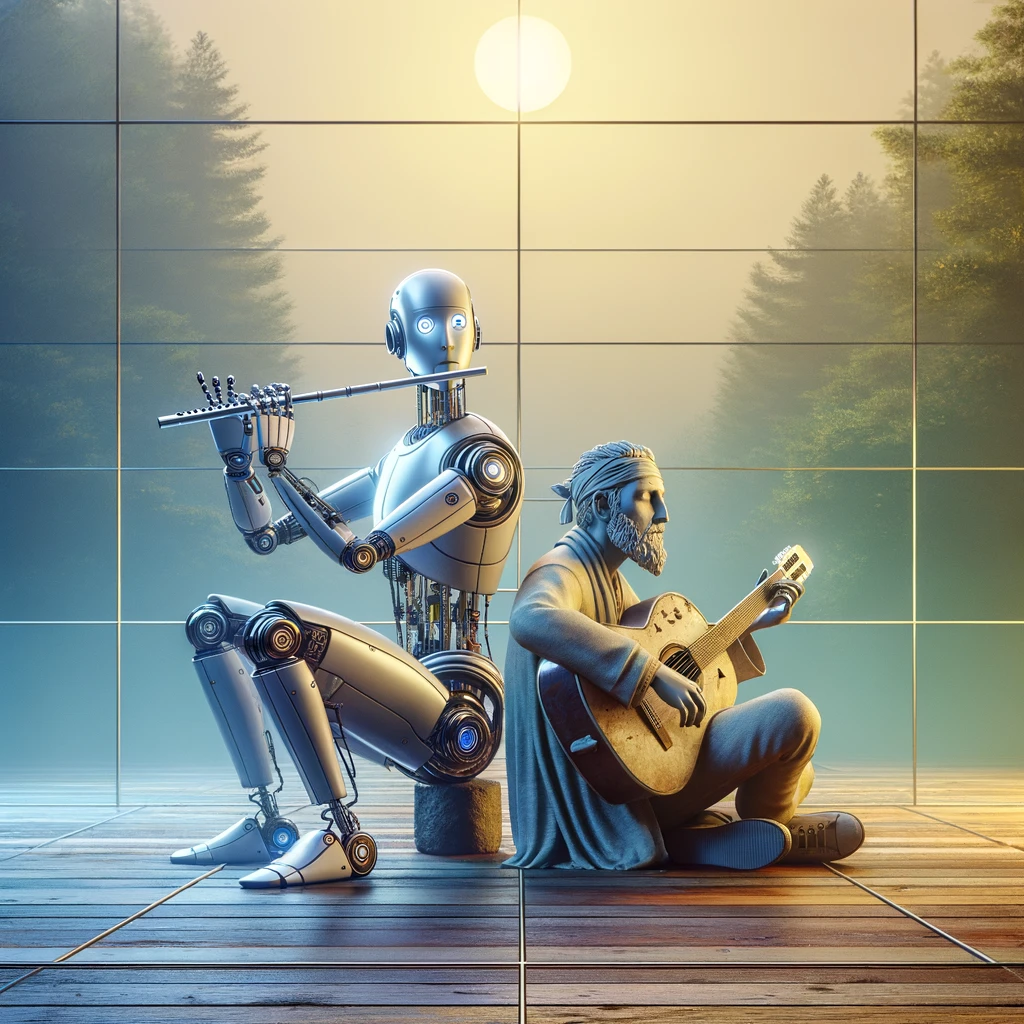In a musical revolution that challenges the conventional boundaries of creativity, the emergence of AI music generation has taken center stage, allowing musicians to transform abstract ideas into fully produced compositions within minutes. This groundbreaking technology, capable of incorporating diverse musical styles, from surf rock to reggae, has sparked a wave of excitement and apprehension within the artistic community. As artists experiment with AI-generated music, questions about its potential impact on traditional musicians’ livelihoods and the ethical use of artists’ styles come to the forefront.
Harmonizing creativity and job security in the era of AI music generation
The integration of artificial intelligence into the realm of music creation has unleashed a wave of possibilities, as expressed by those who have delved into its capabilities. Musicians find themselves awestruck by the speed at which AI can convert vague notions into polished, genre-defying compositions. One user, after experimenting with the technology, described the experience of creating songs that, despite being computer-generated, exuded a remarkably personal touch, incorporating influences and sensibilities unique to the creator.
The transformative nature of AI music generation raises comparisons with other electronic music production methods. Despite the algorithmic origins of the voices and instruments, the resulting compositions transcend the stereotypical electronic sound, offering a personalized and gratifying musical experience. However, the euphoria of creative liberation is accompanied by a growing concern about the potential repercussions for traditional musicians and the broader music industry.
As AI music generation becomes more accessible, a dual narrative unfolds — one of creative empowerment and another tinged with anxieties about job security. The comparison to the historical impact of the player piano on pianists serves as a cautionary tale. While live performances maintain the allure of human expression, electronic music production, facilitated by AI, introduces a paradigm shift that could disrupt the traditional music-making landscape.
The debate intensifies as the ease of AI music creation raises the specter of job displacement. While some argue that these tools can enhance and augment musical creativity, others fear that unscrupulous corporations may exploit AI to cut costs, potentially replacing human musicians. An ominous precedent emerges with reports of a Disney director attempting to substitute the renowned composer Hans Zimmer with an AI system. Although unsuccessful, such endeavors signal a brewing storm, and musicians engaged in fields like radio jingles might find their livelihoods at risk.
The broader labor issue surrounding AI threatens to reshape the music industry’s dynamics, with workers fighting against the deployment of generative tools that prioritize efficiency and profit over their livelihoods. The crux lies in discerning how these technological advancements can be harnessed to improve, rather than harm, the musical landscape.
Artistic commons or copyright conundrum
The convergence of AI and music creation raises critical questions about the fair use of artists’ work in training generative models. AI music generators, akin to image generators, draw from a vast repository of existing musical recordings. However, the ethical dilemma arises when artists find their unique styles inadvertently programmed into AI without receiving financial compensation.
The discussion extends beyond the realm of creativity to encompass copyright and artists’ rights. A vision of a fair system emerges, wherein artists should be entitled to a share of the profits if their work contributes significantly to the capabilities of AI generators. This debate challenges the current copyright paradigm, suggesting that creative works should be considered a common inheritance rather than private property.
In navigating the uncharted territory of AI music generation, the critical question resonates — will this technology serve as a catalyst for musical innovation or as a disruptive force against the very artists it seeks to augment? As the narrative unfolds, it becomes imperative to distinguish between critiques of AI-assisted cultural production and concerns about its potential misuse by corporations.
The focus shifts to the production side, urging vigilance against the ruthless cost-cutting tactics that corporations may employ. The technology must be wielded to empower musicians and creators, fostering a culture of experimentation and creativity. The collective responsibility lies in supporting musicians as they navigate the evolving landscape of music technology, ensuring that it serves humane ends rather than corporate profits.
Amidst the harmonies and dissonances of the AI music generation era, the central question persists — will technology be a boon for musicians, amplifying their capabilities, or a threat that undermines their craft and livelihoods? The answer, perhaps, lies in the hands of those who shape the trajectory of this transformative technological symphony.




